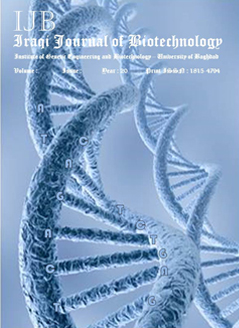Prevalence evaluation of Streptococcus pneumoniae in neutropenic cancer patients
Abstract
Streptococcus pneumoniae is an important human pathogen that causes both serious invasive infections, such as septicaemia, meningitis and pneumonia, as well as mild upper respiratory infections. It also belongs to the normal nasopharyngeal microbial flora. The majority of cancer patients develop neutropenia, most often due to chemotherapy. The purpose of this study was to identify of pneumococci, among neutropenic cancer patients. A total of 72 nasopharyngeal swabs were collected from cancer patients attending Al-Sader Medical City for chemotherapy who were diagnosed as neutropenic, during 6-month study (2016-2017). All swabs were cultured on blood agar plates, 45 α-hemolytic isolates suspected to be pneumococci were identified by phenotypic methods using and identified using colony morphology, catalase, optochin susceptibility bile solubility and API 20 STREP, and a molecular method using PCR. The results of API 20 STREP test alone showed that out of 45 α-hemolytic isolates only 12 (26.6%) were identified as S. pneumoniae. But after combination with the other phenotypic methods which are catalase negative, optochin susceptibility and bile solubility the result was out of 45 α-hemolytic isolates 23 (51.1%) were identified as S. pneumoniae. The results of the PCR test showed that from all the 45 α-hemolytic isolates 25(55.5%) were identified as S. pneumonia.


